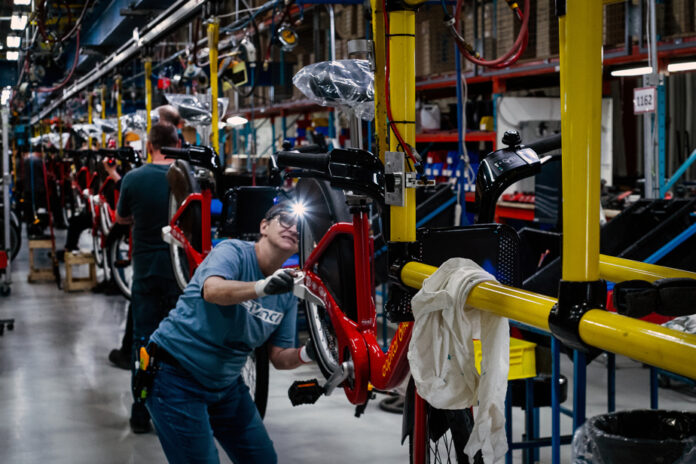“Digital is everywhere. Businesses get discovered faster than before. Exports are therefore needed earlier thanks to technology,” explains Nadine Brassard, President of Commerce international Québec (CIQ).
And this is reflected, of course, in the balance sheets of Quebec companies, she says. According to the Ministry of Economy and Innovation, total sales of goods and services outside Quebec reached $228 billion in 2021, which represents 21% of exports to Canada.
But whoever wants to become an exporter does not become. It takes sustained resources, time and money, says Véronique Proulx, CEO of Quebec Manufacturers and Exporters (MEQ).
The lack of preparation and the fact of underestimating the scale of the task, she says, are what, too often, make an export process collapse. “You have to be prepared to put a lot of time into it, to invest thousands of dollars, to do business with specialists, consultants,” says the one who has organized several trade missions abroad over the years.
According to Nadine Brassard, trading abroad is within the reach of all companies, since Quebec has an important support ecosystem in this regard.
“It’s nothing hard and fast,” she explains. But you have to have dedicated resources. Depending on the target market, it can cost between $50,000 and $300,000. Along with market research and all that comes with it, there are cultural differences, paperwork, customs, etc. to consider. Before you can export your first product, it can sometimes take 18 to 24 months. »
Cases of abandonment are more frequent in SMEs, where resources are lacking, says Nadine Brassard, also director of SERDEX international, a Saguenay export promotion organization.
“Entrepreneurs go on a mission and are enthusiastic to meet people and exchange business cards, but back in Quebec, the daily grind takes over and, for all sorts of reasons, the idea of exporting takes the edge “says Véronique Proulx.
Moreover, according to the CEO of MEQ, of the 13,000 manufacturing companies in Quebec, only 1,000 have more than 100 employees. However, 80% of these 1000 companies export.
For anyone who wants to push the approach and trade internationally, there is no shortage of aid organizations and support services. In its latest budget, Quebec released $25 million to promote exports to other Canadian provinces and elsewhere in the world.
Quebec bicycle manufacturer Cycles Devinci is an export champion. The Chicoutimi SME sells 75% of its bicycle production outside Quebec, more specifically in 20 countries on 5 continents. Entry-level bikes at $700 and high-end bikes that can retail for $10,000.
Certainly, the SME of 150 employees has acquired a lot of experience since it has been doing business outside Quebec for more than 30 years. The ORPEX network (and its 20 regional export promotion organizations), EDC (Export and Development Canada), Investissement Québec and Global Affairs Canada are among the organizations that have helped – and still help – Cycles Devinci over the years.
Knowing the cultural realities of the countries where you want to sell your product or being aware of advantageous trade agreements (mainly with the United States and Europe) are elements to consider, says Francis Morin.
“Above all, you have to be careful not to oversell,” he says. If demand is stronger than expected, you have to be ready to invest in your facilities. You have to be nimble. In our history, we had late deliveries, because we had seen too much. »
Cycles Devinci is in the running for a MercadOr award in the Export Leader category, resource region component. The provincial final of the competition will take place on May 24 in Montreal as part of a gala. The 32 finalists present that evening are in fact the local champions who were selected by the 20 regional export promotion organizations (ORPEX), active across Quebec. The event, which will be in its fourth presentation, is organized by Commerce international Québec (CIQ), which oversees the ORPEXs. The MercadOr awards are the biggest event for Quebec exporting companies.





